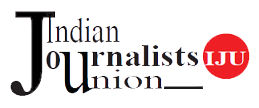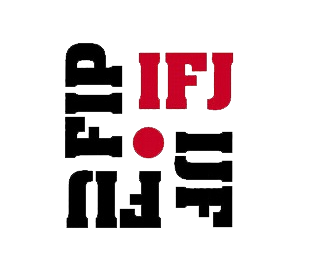- Sabina Inderjit
Pak-bashing by our polity over the ongoing Kashmir unrest has spilled over to the media, who chooses to be the master's voice!
Insecure Pakistan censors Rajnath....unbelievable media blackout..., screamed Times Now. Shocking! Pakistan blacks out Rajnath Singh's tough message on terror at SAARC meet, said Zee News.
Home Minister Rajnath Singh's speech in Islamabad, which delivered forceful messages on terrorism, was not broadcast by local media and Indian crews were not permitted to film it, reported NDTV.
The above is just a sample of how some Indian news channels reported Home Minister Rajnath Singh's visit to Islamabad for the SAARC Interior/Home Ministers meet on 4 August. Outright sensationalist, as it turns out to be. Pak bashing by our polity over the ongoing Kashmir unrest has spilled over to the media, who chooses to be the master's voice rather than verify facts and be accurate! Sadly, in their bid to portray Pakistan as the villain of the piece and India the victim, broadcast journalism yet again gave 'ethical journalism' a burial.
Patriotism, nationalism or the usual sensationalism-as some would like to describe the channels indulgence, the undeniable fact is that basic facts of reporting were given the go-by, wittingly rather than unwittingly. It turns out that the speech was not blacked out, at least not intentionally. On return, in his statement to Parliament, even Rajnath Singh stated: "As far as the reported blacking out of my speech is concerned, I am not aware of protocol norms followed during previous events. I will have to speak to the Ministry of External Affairs. I don't know if it was a precedent. I cannot say anything on that, but they did what they could...."
MEA's version: Islamabad was only following the protocol that called for 'in camera' talks and speeches to facilitate free and frank discussions without media hype and expectations. It is the standard practice that the opening statement by the host country is public and open to the media, while the rest of the proceedings are in camera. So speech was not blacked out.
That being the case, the channels were irresponsible. Had the news channels taken the trouble to check protocol they wouldn't have gone to town about the so-called black out. More so, as it wasn't breaking news that couldn't wait verification. But then it would have deprived them of 'masala' and perhaps of getting even with Islamabad for denying them visas! It's anybody's guess whether the Government of India would have acted any differently given strained relations.
The other question was whether the local print-media too blacked out Rajnath Singh's speech? The hype seemed to suggest this to an ordinary viewer. Well a perusal of the internet shows that The Express Tribune (August 6) reported in a piece: Rest In Peace SAARC: The Tug of war between India and Pakistan: "Newspapers published yesterday were filled with stories on the recent exchange of harsh words between the interior ministers of both India and Pakistan. The aftermath of which resulted in the Indian dignitary neither attending the lunch hosted by Prime Minister Nawaz Sharif nor staying overnight as planned. From Delhi's perspective, PM's tribute to Burhan Wani for his ultimate sacrifice was offensive. "Terrorists should not be glorified as martyrs. There is no good or bad terrorism. Terrorism is terrorism," said Singh in his speech."
The Dawn reported: "....Indian home minister left the meeting half way after losing a war of words with his Pakistani counterpart Chaudhry Nisar Ali Khan. Addressing the meeting, the Indian minister called for tough action against terrorism and countries supporting it. "Terrorists should not be glorified as 'martyrs'. There is no good or bad terrorism. Terrorism is terrorism," he maintained."
Clearly, what emerges is that the Pakistani press did report Rajnath Singh speech. It's a different matter that it too did take sides by imaginary unsavoury comments. While it would be best for the Pakistani media to analyse their standards of reportage, it's about time the Indian media re-read the code of ethics set at least by News Broadcasters Association and Press Council of India, among others. As this 'black out' saga is not a solitary instance, rather one of the numerous which put a question mark on media's credibility.
The NBA seeks Impartiality and Objectivity in reporting and states: "accuracy is at the heart of the news television business. Viewers of 24 hour news channels expect speed, but it is the responsibility of TV news channels to keep accuracy, and balance, as precedence over speed. If despite this there are errors, channels should be transparent about them. Errors must be corrected promptly and clearly...
The PCI's code on Foreign Relations: Media plays a very important role in moulding public opinion and developing better understanding between countries. Objective reporting so as not to jeopardise friendly bilateral relations is therefore desirable.
While the two neighbour's relations are complicated with Governments blowing 'hot and cold' and far from 'friendly' these days, the media's irresponsible reporting doesn't help matters. For, while many a journalist may see the mischief in the reportage, viewers will tend to believe it. Instead of informing the media ends up misinforming. By playing ball with the Government it moulds public opinion subjectively. This is an unhealthy, dangerous trend and certainly not its role.
The media's job is to report news with facts. Comments could come in a debate or opinion pieces. This syndrome of 'making headlines' where none exists has blurred the line between 'facts' and 'comment'. Journalists shouldn't have false illusions that they are the powers that-be. Rather they should be "honest in gathering, reporting and interpreting information." Deviations such as 'Pak Censor' only add to the growing trend of blacking out good journalism!




